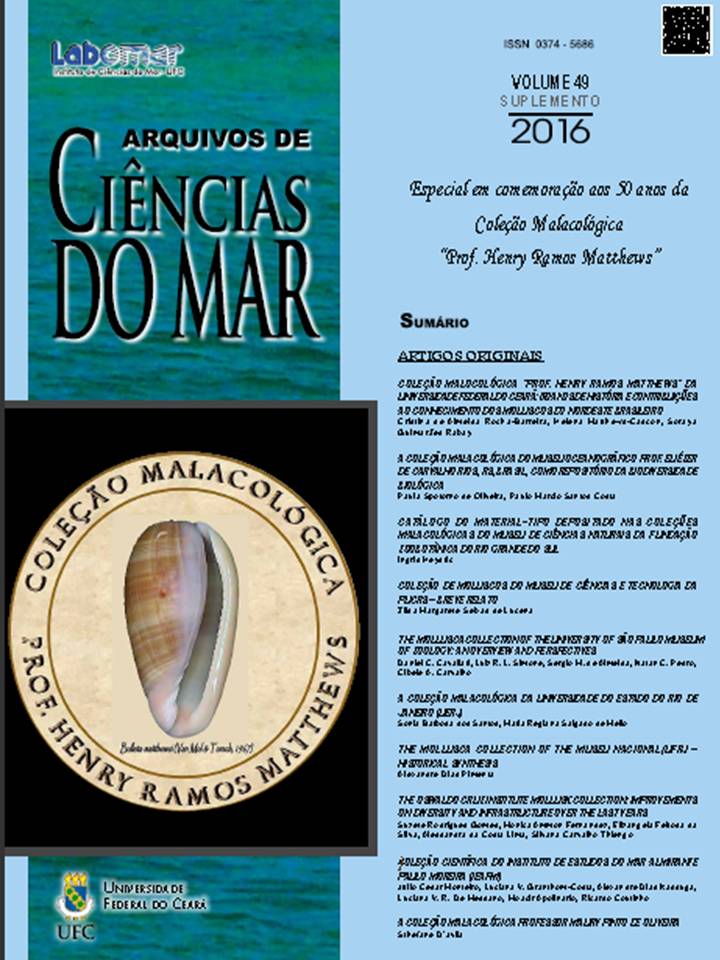THE OSWALDO CRUZ INSTITUTE MOLLUSK COLLECTION: IMPROVEMENTS ON DIVERSITY AND INFRASTRUCTURE OVER THE LAST YEARS
DOI:
https://doi.org/10.32360/acmar.v49i0.6128Palabras clave:
Snails, Slugs, Bivalves, Medical MalacologyResumen
This study aimed at analyzing the Oswaldo Cruz Institute Mollusk Collection (CMIOC) database in relation to the diversity of families and geographic distribution of the lots, as well as to divulge the improvements on infrastructure over the last years. Currently, CMIOC includes 10,102 lots of freshwater (17 families; including syntypes and topotypes) and terrestrial gastropods (23 families), and bivalves. Planorbidae is the most representative family (6,330 lots), while Biomphalaria straminea, the most sampled species (1,084 lots), followed by B. glabrata (612 lots), and B. tenagophila (581 lots). The second most representative family is Ampullariidae (1,255 lots). Although, terrestrial gastropods include only 181 lots, they represent 23 families, being Subulinidae (59 lots), Bulimulidae (16 lots), and Succineidae (24 lots) the most well represented. A total of 61 countries are represented on CMIOC. It includes mainly specimens from Brazil (8,760 lots), representing all 26 Brazilian States plus the Federal District, especially from the Rio de Janeiro State, with samples from all its 92 municipalities (1,647 lots). Improvements on infrastructure include new rooms, cabinets, equipment, and staff, which have been possible thanks to institutional and external financial support. CMIOC has been notoriously playing an important role for different malacological studies on public health and biodiversity, having a great potential to expand and contribute in many other areas of knowledge.Descargas
Publicado
2017-02-13
Número
Sección
Artigos originais
Licencia
1. Proposta de Política para Periódicos de Acesso Livre
Autores que publicam nesta revista concordam com os seguintes termos:
- Autores mantém os direitos autorais e concedem à revista o direito de primeira publicação, com o trabalho simultaneamente licenciado sob a Licença Creative Commons Attribution que permite o compartilhamento do trabalho com reconhecimento da autoria e publicação inicial nesta revista.
- Autores têm autorização para assumir contratos adicionais separadamente, para distribuição não-exclusiva da versão do trabalho publicada nesta revista (ex.: publicar em repositório institucional ou como capítulo de livro), com reconhecimento de autoria e publicação inicial nesta revista.
- Autores têm permissão e são estimulados a publicar e distribuir seu trabalho online (ex.: em repositórios institucionais ou na sua página pessoal) a qualquer ponto antes ou durante o processo editorial, já que isso pode gerar alterações produtivas, bem como aumentar o impacto e a citação do trabalho publicado (Veja O Efeito do Acesso Livre).

